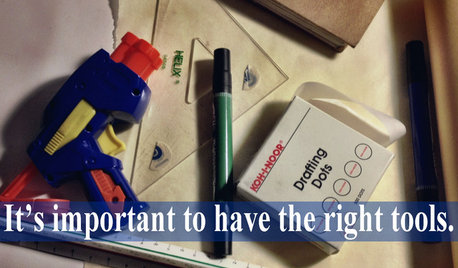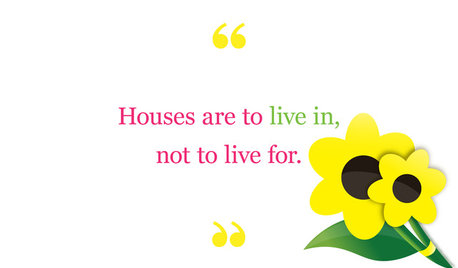anyone worried about ink from mail?
sunnydays_gardener
13 years ago
Related Stories

FUN HOUZZEverything I Need to Know About Decorating I Learned from Downton Abbey
Mind your manors with these 10 decorating tips from the PBS series, returning on January 5
Full Story
GARDENING GUIDESHow to Stop Worrying and Start Loving Clay Soil
Clay has many more benefits than you might imagine
Full Story
COFFEE WITH AN ARCHITECTWhat My Kids Have Taught Me About Working From Home
Candy and Legos aren't the only things certain small people have brought to my architecture business
Full Story
MOTHER’S DAYWhat We've Learned From Mom About Home
Share cherished memories as Houzzers recall the special traits, insights and habits of their mothers
Full Story
LAUNDRY ROOMSThe Cure for Houzz Envy: Laundry Room Touches Anyone Can Do
Make fluffing and folding more enjoyable by borrowing these ideas from beautifully designed laundry rooms
Full Story
MUDROOMSThe Cure for Houzz Envy: Mudroom Touches Anyone Can Do
Make a utilitarian mudroom snazzier and better organized with these cheap and easy ideas
Full Story
BUDGET DECORATINGThe Cure for Houzz Envy: Entryway Touches Anyone Can Do
Make a smashing first impression with just one or two affordable design moves
Full Story
KITCHEN DESIGNThe Cure for Houzz Envy: Kitchen Touches Anyone Can Do
Take your kitchen up a notch even if it will never reach top-of-the-line, with these cheap and easy decorating ideas
Full Story
DECORATING GUIDESThe Cure for Houzz Envy: Guest Room Touches Anyone Can Do
Make overnight guests feel comfy and cozy with small, inexpensive niceties
Full Story
HOME OFFICESThe Cure for Houzz Envy: Home Office Touches Anyone Can Do
Borrow these modest design moves to make your workspace more inviting, organized and personal
Full Story







toxcrusadr
gardenlen
Related Professionals
New Bedford Landscape Architects & Landscape Designers · Newcastle Landscape Architects & Landscape Designers · Bowie Landscape Contractors · Chesapeake Ranch Estates Landscape Contractors · Edwardsville Landscape Contractors · Galveston Landscape Contractors · Pleasant Hill Landscape Contractors · Quincy Landscape Contractors · Vineyard Landscape Contractors · Webster Groves Landscape Contractors · Alvin Decks, Patios & Outdoor Enclosures · Athens Decks, Patios & Outdoor Enclosures · Cape Coral Decks, Patios & Outdoor Enclosures · Oak Ridge Decks, Patios & Outdoor Enclosures · Pittsburgh Decks, Patios & Outdoor Enclosureshoodat
jonas302
albert_135 39.17°N 119.76°W 4695ft.
Kimmsr
lisascenic Urban Gardener, Oakland CA
harebelle
david52 Zone 6
Nevermore44 - 6a
toxcrusadr
jolj
nutsaboutflowers
toxcrusadr